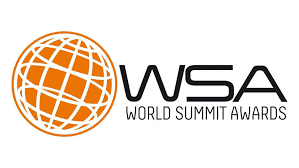Consultancy Opportunity: Technical Assistance for Education and Child Protection Program Integration Guidelines Development
Background information
Children affected by displacement face a complex range of vulnerabilities and exposure to risk due to external factors related to the context they live (lack of access to services and enjoyment of rights, poverty and exclusion, lack of future opportunities, uncertainty, etc.) and other drivers as gender inequalities, lack of information, age or social dynamics. Children are part of a broader family, community and societal environments that needs to be taken into consideration while addressing children’s needs and while trying to contribute to their wellbeing and development.
While humanitarian, development and government bodies and actors acknowledge the importance of education for children as a right but as well as a protective environment where children should enjoy opportunities for the realization of their full potential, usually education and child protection programmes are not enough coordinated and integrated. The lack of integration and coordination impact in a negative way the access, retention and outcomes of children in education but as well fails in mitigation of risk of violence, exclusion or stigmatization. In addition, education activities can have a positive impact in identification of children in need of specialized child protection services while child protection activities can address some of the barriers that children face accessing to education.
Main education and child protection actors implementing programs in Kakuma and Dadaab refugee camps, Kalobeyei settlement and surrounding host communities, are seeking to strength collaboration, coordination, and programmatic integration to better outcomes in child protection and education related responses promoting child protection, child participation, access and retention into educational systems.
Objectives
The objective of the consultancy is to develop guidelines on child protection and education programmatic integration for refugee response in Kenya.
Methodology
- Assess how child protection and education responses are conducted in the locations of interest.
- Conduct a review of existent guidelines for child protection and education programmatic integration and existing projects being implemented by partners.
- Develop and agree with involved partners the subjects, topics and general content to be included in the guidelines including programmatic integration activities, approach, community engagement, risks, diversity and gender considerations, safeguarding, accountability and complain mechanisms.
- Conduct group and ad hoc consultations with child protection and education stakeholders to understand needs, limits, challenges and suggestions for child protection and education programmatic integration.
- Develop guidelines on child protection and education programmatic integration.
- Conduct validation sessions with stakeholders.
Tentative Workplan
Activities
Initial on ground assessment : 8 working days
Review of existent guidelines and technical support documents : 3 working days
Conduct consultations with stakeholders :5 working days
Guidelines writing :10 working days
Validation process :10 working days
Final presentation : 2 working days
TOTAL : 38 working days
Roles and Responsibilities
The guidelines will be developed by a technical consultant and will be directly supervised by NRC and Tdh in coordination with child protection and education partners.
Individual Consultant or Consultancy Agency:
- The consultant will be the responsible for the development of the guidelines.
- The consultant/consultancy agency will be required to provide credentials (name and designation) of the consultancy team if appropriate.
- Conduct on ground assessment and partner consultation as well as the necessary workshops and meetings in Nairobi.
- Develop necessary tool for information gathering and analysis.
- Develop, submit, and review the guidelines.
- Physical presentation and restitution of guidelines.
NRC and Tdh:
- Will provide access to key reference documents.
- Coordination with key partners and stakeholders to schedule and facilitate interviews.
- Provision of technical input, support review and feedback.
- Validation on draft reports.
Intended Users
The final guidelines will share with child protection and education partners and stakeholders involved in refugee response in Kenya. It will be shared as well with child protection and education coordination systems, donors and technical groups who could have an interest on it. The guidelines will be jointly implemented by refugee response partners.
Budget
The budget will be provided by the consultant as part of a financial proposal.
Profile of the Consultant (team): Qualifications and Experience
The individual Candidate or Consultancy Agency should have:
- Demonstrated professional experience and qualification in developing technical documents related to education and child protection.
- Sound knowledge on education and child protection in refugee operations in Kenya.
- Demonstrated previous experience in providing technical capacity NGOs or government agencies in Kenya.
- Excellent communication and writing skills and experience in consultation and coordination.
- Excellent writing and synthesis skills in English.
How to Apply
Interested individuals or agencies should submit:
- A technical offer with details about the intended methodology and workplan (3 to 5 pages).
- A financial offer including a detailed budget per item.
- CV and biographies of independent consultant/consulting firm and key assessment team members (if any);
- Evidence of previous related works.
- Contacts of two references
- Proof of registration of the consultant/ consultancy firm
The interested firm/ consultant should submit a technical proposal with a detailed methodology, indicative work plan, and the overall approach to the technical capacity and an all-inclusive budget proposal by 31th October 2022 at 4.00pm. The submission of proposals (technical and financial) and/or related questions should be directed via procurement email to: ken.tenders@tdh.ch
Recruitment procedure follows Tdh’s Global Code of Conduct, including reference checks and criminal screening of personal data.
Tdh applies equal working conditions for men and women. Moreover, with equivalent qualifications, female applications are strongly encouraged. The recruitment and selection procedures at Tdh reflect our commitment to help and protect children.








